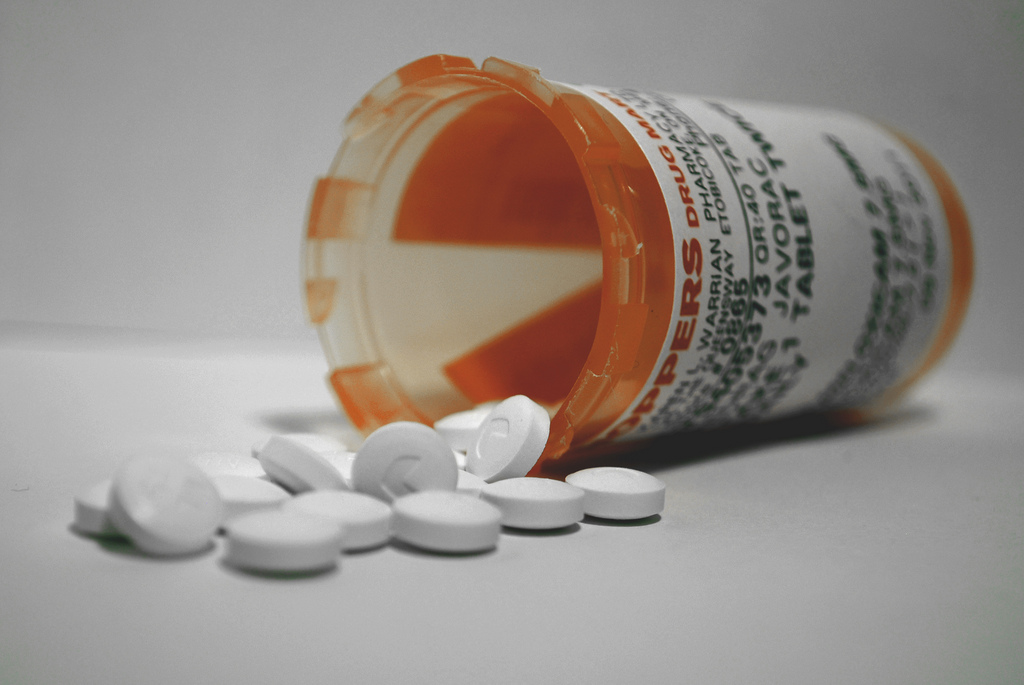Canada’s Parliament will debate a bill next week that could add significant new powers to regulate the sale and recall of drugs in the country.
Bill C-17, officially titled the “Protecting Canadians from Unsafe Drugs Act,” was nicknamed “Vanessa’s Law” in honor of the daughter of Conservative MP Terence Young, who died of a heart attack at the age of15 while taking the drug cisapride for a stomach ailment. The drug was later recalled in both the U.S. and Canada.
The bill’s main focus is to expand the Food and Drug Act to better regulate medicines after they reach the market. The Health Minister would have greater powers to require safety testing, recall drugs and medical devices if deemed unsafe, and to require changes to products’ labels.
The bill received its first reading in December and is slated March 28 for the first hour of debate.

Photo courtesy of The Javorac. Some rights reserved.
Canada’s Food and Drug Act provides limited authority to regulatory bodies to deal with devices and drugs after they’ve been approved. Although companies often voluntarily recall drugs after a major problem is discovered, there are limits to what the government can do to force recalls in a timely manner.
Writing for the legal website Lexology, Ingrid E. VanderElst and Timothy M. Squire of Fasken Martineau LLP point out that the Minister of Health already technically has the power to change labels and suspend marketing authorizations.
“Arguably,” they write, “the most significant changes found in the proposed legislation are the increased penalties for non-compliance with the law, which may signal the advent of a more aggressive approach to enforcement in matters relating to drug and medical device safety.”
Most experts have generally spoken approvingly of bill’s broad intent. More contentious, though, have been several items noticeably absent from the bill.
One of these is the lack of any mention of transparency about clinical trials and other information on which Health Canada makes its decisions about drugs. A failed bill to amend the Food and Drug Act in 2008 would have ensured public access to safety data, but the current incarnation does not.
An analysis of the law published by the Canadian Medical Association Journal in early March criticizes the law for this particular omission, saying it doesn’t go far enough to address these and other inadequacies of the existing regulatory framework.
Then there’s the problem of so-called “natural health products,” which are specifically excluded from oversight by the bill. These products are notoriously under-regulated, to a greater extent in Canada than even in the U.S.
The Canadian Science watchdog Bad Science Watch is campaigning to remove the exemption language from the bill. According to Yorkton This Week columnist Thom Barker, the group has had past successes in lobbying for regulatory changes. As recently as September 2013, it got Health Canada “to require labeling of nosodes (also known as homeopathic ‘vaccines’) with a warning that states, ‘This product is not intended to be an alternative to vaccination.’”
Finally, pharmacist and lawyer John Greiss notes that Bill C-17fails to address the problem of companies marketing products for uses other than those for which they were originally approved.
“Health Canada relies on the industry to self-regulate itself and has allocated minimal resources to ensure compliance with current regulations,” Greiss writes in a December piece for healthydebate.ca. “Moreover, the Food and Drug Act limits the penalty of off-label marketing to a fine of $500 and three-months of jail time,”a limit that would not change under the proposed law.
Greiss contrasts this with the FDA’s relatively aggressive prosecution powers, which in 2012 won it a $3billion settlement – the largest in history - with GlaxoSmithKline over fraudulent off-label marketing of the antidepressants Paxil and Wellbutrin and the diabetes drug Avandia.





Comments